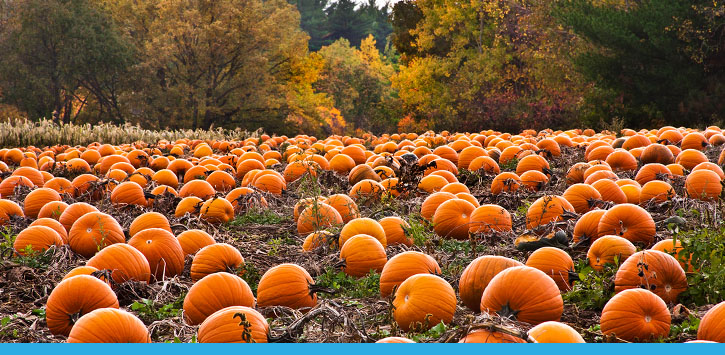Halloween has been known for dressing up in costumes, trick or treating, enjoying some thriller or horror movies, and decorating homes with skeletons, witches, pumpkins, and mummies. People all over the world celebrate it. However, many do not know the chilling origin about it. What is Halloween really about?
It all begin with a Celtic New Year festival called Samhain “(pronounced `Soo-when’, `So-ween’ or `Saw-wen’)” which means summer end. It marked the close of summer or harvest season and welcomed winter. During this time, the Celtics believed the veil between the living and dead wore thin; the dead walked around and interacted with the living. The Celtics stocked food, did animal sacrifices and burned bones in “bone fires” which became known as “bonfires” later on. Food was given for the spirits and some say they dressed up to confuse demons while others say they confused spirits or other nonhuman things. Yet, mainly they were having fun doing tricks and pranks.
Moreover, during the spread of Christianity and Catholic Church, the Romans reframed the Celtic traditions since they conquered their land to make it popular while spreading their religion. In the year 609, on May 13, Pope Boniface IV declared a celebration called All Saints Day to celebrate and honor Christian saints and martyrs. It is also called All-Hallows Eve or All-Hallowmas in Middle English and All Souls Day. Later on, in the 8th century, Pope Gregory III moved it to Nov. 1 which is the day of Samhain. The reason why he did this is unknown. There are many debates about it. Many think the Pope moved to that day to Christianize it, so he can convert more people to the religion.
In addition, according to “The Dark History Behind Halloween is Even More Chilling than you Realized” by Aine Cain and Rebecca Aydin, “In medieval England, ‘soulers’ would go around begging rich folk for ‘soul cakes’ on Halloween. Instead of threatening to play tricks, however, they’d pray for peoples’ souls in return for the cake.” They say, “Throughout medieval Europe, mummering — dressing in disguises and visiting neighborhoods while dancing, playing music, and doing tricks — was popular on major feast days.”
Leading to the Guy Fawkes Day, in the 17th century, which was added in part of Halloween. According to History of Halloween by Joshua Mark, “On 5 November 1605 CE, a group of dissident Catholics tried to assassinate the protestant King James I of Britain in an attempt known as the Gunpowder Plot. The attempt failed and one of the group, Guy Fawkes, was caught with the explosives beneath the House of Lords and, although he had co-conspirators, his name attached itself famously to the plot.” It was celebrated in Britain by Protestants since it went against “popery.” Furthermore, non-Catholics celebrated this by doing sermons or vandalizing Catholic homes and businesses, even though, the government claimed it was providence that the king wasn’t killed. Before Guy Fawkes Day, people feasted, drank, lit bonfires and fireworks. Unpopular figures including the pope were hung on effigy. “Children and the poor would go house to house, often wearing masks, pushing an effigy of Guy Fawkes in a wheelbarrow and begging for money or treats.”
Now knowing the background of Halloween, what does the word mean? The word Halloween is two words coming together. Hallow- meaning “holy saint” and een- the contraction of “eve” which means “night before”. Putting it all together creates “the night before All Saints’ Day”, along with, Hallowmas or All Hallows’ Day.
In conclusion, all these festivals came from the Celtic festival Samhain. Celebrated in many similar ways in around the world. However, remember on the full moon of Halloween, spirits may be lurking in your backyard.
Works Cited
Cain, Áine. “The Dark History behind Halloween Is Even More Chilling than You Realized.” Business Insider, Business Insider, 28 Oct. 2019, www.businessinsider.com/history-of-halloween-2017-10.
Lang, Cady. “What Is Samhain? Origin of Halloween Rooted in Pagan Holiday.” Time, Time, 30 Oct. 2018, www.time.com/5434659/halloween-pagan-origins-in-samhain.
Mark, Joshua J. “History of Halloween.” Ancient History Encyclopedia, Ancient History Encyclopedia, 20 Oct. 2020, www.ancient.eu/article/1456/history-of-halloween.


Hi Carina,
I truly love your article. I certainly learned a lot. You really got me hooked on your story.
Thank you so much!!!
How was your Halloween?
Sorry, I and my family don’t celebrate Halloween. But, I never knew much about the origin. So, I decided to do an article about it.
Great Article Carina!
Thank you so much!!!
I love your fashion article. I’m really into fashion. I want to go to modeling school after I graduate high school.
I never knew any of this. This is a great article.